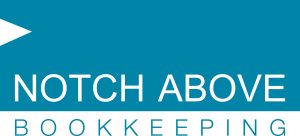Tips for Maintaining and Managing Good Cash Flow
Having adequate working capital at all times is important
Managing this capital carefully is critical.
Managing cash flow involves keeping a vigilant eye on revenue, cost structure, the quality of your business plan and your capital structure. This way, you can ensure your business remains cash flow positive at all times.
Best practice tips for cash flow management
Financial reporting
- Have a properly structured balance sheet that has all the details, from inventory and debts to interest costs.
- Know your business’ balance sheet back to front and understand the numbers. This is vital in managing cash flow and budgeting.
- Review your P&L statements comprehensively at least quarterly and preferably monthly to identify trends and track progress against budgets and targets, whether or not times have been good.
- Keep a close eye on margins to ensure costs aren’t creeping up.
- Don’t just focus on your profit and loss statement to the exclusion of all else. Be aware that healthy profits can sometimes mask a developing cash flow crisis.
Cash flow management
- A crucial part of managing cash flow for small business is knowing where every dollar and cent is being spent. Every dollar saved is a dollar straight on the bottom line, whereas a sale carries with it direct costs and overheads.
- Construct a useful cash flow projection, which is your ‘best guess’ at the business’ cash inflows and outflows over a period of time. Review and adjust your projection regularly.
- Work with your bookkeeper to learn how to manage cash flow in your business. Depending on your specific situation we may recommend doing cash flow budgeting on a weekly, monthly or quarterly basis and advise you on a range of issues including which invoices you should pay and who will pay you.
- Update and review your business cash flow budget regularly, using conservative revenue and expense estimates. This will forewarn you about potential cash shortages. It will also help build your business’ credit track record.
- Be aware that rapid growth can often result in a cash crunch.
Suppliers
- Keep good records of supplier transactions. This will give you better leverage in negotiating more favourable terms and prices.
- Regularly review your suppliers, such as your insurance or energy plan.
- Get the payment cycle right for creditors and debtors.
- Check all supplier invoices carefully for accuracy.
- Spread the payments of invoices over the month when payments actually fall due rather than having one day per month designated to pay invoices.
Best practice
- Keep your working capital and business bank account separate from your personal bank account.
- Avoid giving family members credit cards on the business account.
- Use purchase orders to reduce discretionary staff spending.
- Draw a wage or salary for yourself rather than just drawing on the account for personal expenses as needed. This can be unmanageable, time-consuming and costly.
- If your business has a floating interest rate loan, consider the benefits of locking in your loan’s interest rate for a defined period to avoid the impact of increased interest rates.
- Consider the benefits of protecting your bottom line profitability and minimising the impact of additional interest costs bypassing any costs on to customers as they arise.
Notch Above Bookkeeping are Platinum Certified Xero bookkeepers and BAS Agents. We help small business owners across Australia (especially medical specialists such as dentists, orthodontists, optometrists and anaesthetists) to prepare BAS returns and streamline their bookkeeping processes, payroll and accounting records using cloud technology.
Source: Business Australia
#remotebusinessbookkeepers #cloudbusinessbookkeeping #xeroplatinumbookkeepers



